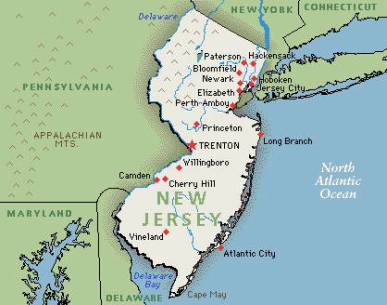
For 20 years, RPCV Thomas Corcoran has been furiously selling the Camden waterfront.
His drive led to waterfront boom
Camden's side of the Delaware now thrives because of one man's work. Two decades ago, it had been full of abandoned buildings.
By Elisa Ung and Dwight Ott
Inquirer Staff Writers
For 20 years, Thomas Corcoran has been furiously selling the Camden waterfront.
In the early days, it was the urban equivalent of Florida swamp land: a jumble of abandoned soup factories, warehouses, and a rail line.
Today, it is clear that many bought his pitch. While Philadelphia struggles with Penn's Landing, Camden's waterfront has received more than $400 million in investments, with more on the drawing board.
This year, Corcoran marks two decades since he started the nonprofit Cooper's Ferry Development Association, which has had a hand in every waterfront deal while using the power and money of others.
"In the end, the most important thing I do is selling," said Corcoran, 60, who lives in the state's poorest city. "Selling the waterfront. Beyond the waterfront, selling Camden."
Along the way, Corcoran has battled mayors who said he ran an unelected shadow government. Others say Cooper's Ferry hijacked resources from the city to benefit the waterfront, with not enough private investment to show for it. "It's swallowed millions of dollars from taxpayers, and the people of Camden have not been getting any of the benefits," said Camden City Councilman Israel Nieves.
Critics and fans alike agree that Corcoran is nothing if not resilient. He has survived five governors, five mayors - three of whom were indicted - and a shifting political landscape. Some call him "Tommy the Cork" - he always bounces back.
Without an independent, nongovernmental agency, "the vision would not have been sustained," he said. "It would have died every time a mayor was indicted." And the Camden waterfront's two major developers say they are there because of Corcoran, who sold them the vision and shepherded them through the bureaucracy.
Philadelphia developer Carl Dranoff, who is now building waterfront homes, says: "I think he's been the catalyst for virtually everything that's happened on the Camden waterfront for the last 20 years."
Turning Camden around
Corcoran, a Chicago native and former Peace Corps volunteer, came to Camden in 1975. Riots had devastated the city. Industry was leaving. The middle class had long left.
A graduate of the Wharton School of the University of Pennsylvania, he was one of three "whiz kids" hired by Mayor Angelo Errichetti to turn the city around. Corcoran headed the city's Utilities Department, and then became business administrator under Mayor Melvin R. "Randy" Primas.
Primas had been eyeing the waterfront as a potential catalyst for change. About 130 acres of land were owned by the city, RCA or Campbell's Soup.
After several studies, city leaders decided to hand the entire chunk of land to a nonprofit group that could focus on a long-term development plan.
Thus was born Cooper's Ferry, named after the waterfront's historic name. And with it, the city, RCA and Campbell's Soup decreed that any developer had to first get past Corcoran.
And as a former city official, Corcoran knew where the resources were. He wrangled to have city employees work out of his office, focusing on waterfront issues.
Camden first went for a big splash - an aquarium, which, officials hoped, would spark investment, as happened in Baltimore. Then-Gov. Thomas Kean steered state money toward the project. Corcoran bragged that the waterfront would have "critical mass" by 1992.
But that was the year the aquarium opened. In the meantime, roads had to be built, parking spaces created. "Looking back, I wonder if I wasn't delusional," Corcoran says.
Those infrastructure elements became the task of Cooper's Ferry. It persuaded Conrail to abandon its rail line, which ran down Delaware Avenue, and launched a ferry to Penn's Landing. The agency obtained federal transportation money for some of the work.
The aquarium - despite the "brown fish" debacle of its early years - would set the stage for the rest of the waterfront. Every one of its projects over the next decade needed public money - federal, state, county, Delaware River Port Authority. And each "usually died 10 times - and was resurrected on the 11th," as Corcoran put it.
There was what is now the Tweeter Center, which nearly died from a power struggle between Corcoran and then-Mayor Arnold Webster.
There was the office building One Port Center, which two governors tried to kill and which eventually shrank by six floors.
There was Campbell's Field, which Cooper's Ferry developed, and its minor-league Riversharks, who have drawn crowds but almost went bankrupt paying off the ballpark.
Many others died, never to be resurrected: a Campbell's Soup world headquarters, a hotel/conference center, an arena that was supposed to steal the Sixers from Philadelphia. And there were the projects that Corcoran deliberately quashed: a minor-league stadium with fewer home games, an archives that would have employed hundreds of Camden residents on roller skates, a dinosaur museum.
"Some people said: 'Well, they're better than what's there now,' " said Corcoran. "But God isn't making any more waterfront land. It would have been easy to do, but you wouldn't have been able to attract the... Dranoffs of the world."
Corcoran also has walked a political tightrope.
He built a relationship with Camden County Democratic power broker George E. Norcross 3d. Then, when the GOP took over the state government and the DRPA, he turned to Burlington County Republican boss Glenn Paulsen, who was the port authority's vice chairman. "People used to ask Willie Sutton why he robbed banks. His answer was that was where the money was," said Corcoran. "It's always been a case of, we go where the money is and where the power is."
At groundbreakings and in interviews, he makes sure to credit the officials whose agencies provided the money. "He stuck with the vision, and it's the right vision," said former governor Kean.
Now, plans by Dranoff and Steiner & Associates are expected to bring about $485 million in private money to the waterfront over the next decade.
Steiner is expanding the aquarium and developing long-awaited shops and restaurants. Its president, Barry Rosenberg, said that without Corcoran's independent guidance, the company would have left long ago.
"You're dealing with all these different agencies, and people have different goals. [Cooper's Ferry has] always been constant and had a clear vision."
Jeffrey L. Nash, the port authority's current vice chairman and a Democrat, says he is reevaluating Cooper's Ferry's annual $425,000 operating subsidy, which runs through next year. He says all of Camden's redevelopment should flow through the city Redevelopment Agency, and that similar work by Cooper's Ferry and other nonprofits is creating confusion among developers. "The focus has moved from Cooper's Ferry to the CRA, and that's a good thing because it's important for any city to have its own economic development entity," he says.
Mayor Gwendolyn Faison, who sits on the Cooper's Ferry Board, said that the waterfront "wouldn't have anything" without Corcoran, but that his style leaves something to be desired. Others who bash Corcoran privately are reluctant to do so on the record. Some point to the strong support he has received from newspaper editorial writers, including at The Inquirer, as a deterrent.
A goal to create jobs
Today, attractions on the Camden waterfront produce about $3.4 million in city revenue, about 2 percent of the struggling city's annual budget. The goal is to create 1,000 full-time waterfront jobs for Camden residents; this summer there were about 150.
Longtime City Hall official Richard Cinaglia says the early waterfront vision "was going to make us solvent and bring in ratables to be self-sufficient... . It never did."
Former "whiz kid" colleague Bill Hankowsky, now chief executive officer of Malvern-based Liberty Property Trust, says that, in a sense, the Philadelphia and Camden waterfronts yearn for what the other has. Philadelphia has private restaurants, hotels and nightclubs. But Camden has more of a big-scale entertainment theme, Hankowsky said.
Corcoran has lived in Camden all along, enduring seven burglaries and one fire. "Somewhere along the line, this became my life's work," he says.
He now lives in Dranoff's Victor Lofts and pays himself $144,000 a year to run Cooper's Ferry, whose $1.3 million budget includes $500,000 in project-management fees and the $425,000 DRPA grant.
It administered a streetscape-beautification project for downtown Camden, and communities in South Camden, Parkside and Cramer Hill have asked the group to help them draw up neighborhood plans. On a recent afternoon, Corcoran gazed down the promenade that Cooper's Ferry built along the river, establishing public access to the river's edge.
But he grows sad when a call brings him down to reality - three homicides in Camden the previous night. "We're sort of living in Never-Never Land," he says. "If the waterfront ends up an island unto itself, it will have failed."
Contact staff writer Elisa Ung at 856-779-3997 or eung@phillynews.com.





